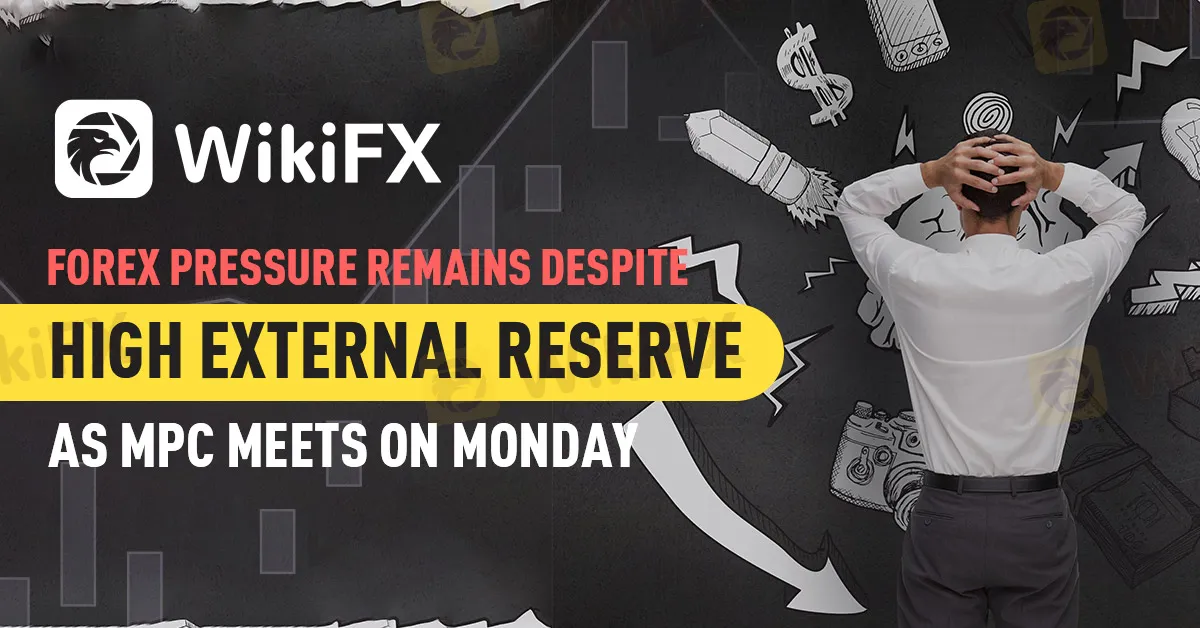Abstract:There are questions about how to stop the naira's decline or the swift inflationary rise that has persisted despite a $38.7 billion foreign reserve as the Monetary Policy Committee (MPC) meets on Monday and Tuesday.

There are questions about how to stop the naira's decline or the swift inflationary rise that has persisted despite a $38.7 billion foreign reserve as the Monetary Policy Committee (MPC) meets on Monday and Tuesday.
Just over the weekend, the naira plunged to its all-time low on the black market—N720 per USD—as well as to N436.33 per USD on the official Import and Export (I&E) market.
The Naira has lost about 49.6% of its value in less than three years, from a little over N360 to the current exchange rate of N714/USD, which it was trading around on Sunday, according to the exchange rate at the parallel market, which many claim is a window for the price discovery of the local currency.
The effectiveness of the foreign reserve, which analysts say is a barometer for gauging a country's potential to satisfy foreign currency obligations, is another conundrum for Nigeria.
The International Monetary Fund (IMF) reports that nations with sufficient external reserves typically avoided significant drops in output and consumption during economic downturns because they give them the means and capacity to deal with inevitable capital outflows during global economic shocks or recessions without going through domestic crises.
It is ironic that Nigeria, which boasts of having $38.7 billion in external reserves, or more than nine months' worth of import coverage, nonetheless experiences persistent currency devaluation and rising inflationary pressures.
Although the Naira has had comparatively stable exchange rates at the official window, many claim that the rate is artificially manipulated by the Central Bank, which continues to be a significant foreign exchange buyer and seller at the official Investors' and Exports' window.
Although the Naira traded at N429.68/USD on Sunday in the official market, the grandeur of price stability is undermined by the inability of both retail and corporate end-users to meet their foreign currency demand in this market segment.
According to official statistics from the National Bureau of Statistics, imports are estimated to be $4.1 billion on a monthly average. If the traditional measure of external reserves were to be applied to Nigeria's situation, then any level of the country's external reserves should inspire confidence and comfort.
“How do you say a government has over $38 billion in external reserves when it is struggling to satisfy obligations of less than $200 million, with delays often lasting into weeks?” asked one analyst who wished to remain anonymous.
It undercuts trust in the external reserves and the Central Bank's capacity to really protect the Naira.
Nigeria's foreign exchange reserves remain among the greatest on the continent, not just in nominal terms but also using conventional metrics of reserve adequacy, despite declining 4.5%, or $1.8 billion, year to far from $40.52 billion in December 2021 to its present level of roughly $39.7 billion.
Kenya, for instance, has $7.4 billion, or four months' worth of imports. The Kenyan shilling, however, has not lost as much value during the past three years as the Nigerian naira.
FOREX PRESSURE CUTTING JOBS, OTHERS
One of the causes of the rising interest rates, which have the potential to slow down the money supply and harm chances for new job creation, is the ongoing pressure on the exchange rate.
A negative contributor to the persistently high unemployment rate in the nation is the rise in interest rates, which would cause firms to borrow less money and make new initiatives less profitable.
The benchmark interest rate had to be raised by 250 basis points to 14% earlier this year after the MPC was forced to change its accommodative stance. As long as exchange rate and inflationary pressures exist, many analysts believe the policy rate may grow further. The National Bureau of Statistics (NBS) recently released its August report, and the headline inflation rate was 20.53%, the highest in over two decades. Exchange rate pressures continue to affect the pricing of imported goods in addition to the rising food inflation brought on by the country's low agricultural production and cultivation. This is especially true given the nation's continued dependence on imports.
The United States Federal Reserve and the Bank of England are two central banks that have recently lifted their policy rates as the rate hike already continues on a worldwide scale. While the US Fed increased its rate by 75 basis points on September 21 to 3.250%, the BoE increased its rate by 50 basis points to 1.750% the next day.
NIGERIA REQUIRES TOUGH DECISIONS – EXPERTS
Experts have asked for difficult decisions and a way to control the situation in Nigeria when the MPC meets. Abiola Rasaq, Head of Corporate Strategy at Central Securities Clearing System Plc, claims that Nigeria's situation is made worse by the country's loss of export revenue, domestic resident capital flight, residents' stubborn desire for international products and services, and low local output.
Adenuga Olufemi, Group Head of Finance and Corporate Services at Blackstone Capital Limited, also voiced his opinion and advocated for integrated fiscal and monetary changes as well as the need to make some difficult choices.
Additionally, he stated that there was a clear discrepancy between the stability of the Naira and Nigeria's external reserve.










